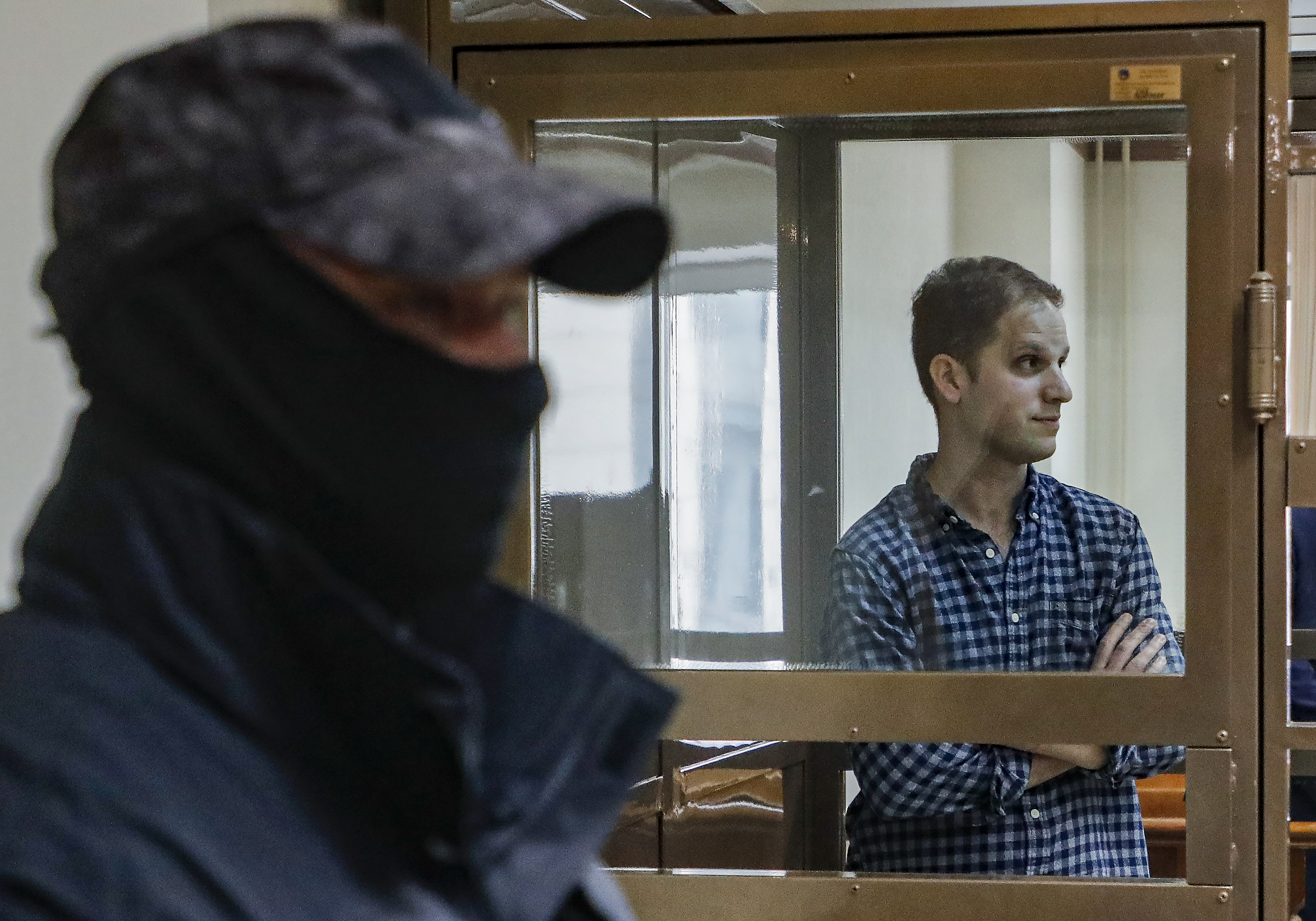The IPI global network firmly condemns the decision of Russia’s Sverdlovsk Oblast court to sentence WSJ correspondent Evan Gershkovich to 16 years in a high-security prison on charges of espionage. Russian authorities never produced evidence to support the baseless accusations against Gershkovich – and the circumstances of his arrest and rapid trial and sentencing point clearly to a politically motivated prosecution.
On 26 June, Gershkovich’s trial began at the Sverdlovsk Oblast court, which is located in the Russian city of Yekaterinburg. The trial took place in the city where the journalist was initially detained in March 2023, when he was on a reporting trip to the region for an article about recruitment efforts by the former private military group Wagner. Proceedings were held behind closed doors, a common practice in Russia for cases related to espionage or state treason.
The accusations against Gershkovich were directly related to his work as a journalist: investigators in the case accused him of “collecting information” about the Russian defence industry, which inevitably was a core part of Gershkovich’s job in the scope of his assignment. Authorities then developed this accusation and insinuated that the WSJ correspondent had gathered information about a military plant in Sverdlovsk region for the profit of the CIA. Gershkovich, WSJ and the US State Department have all dismissed these claims as ludicrous and Russian investigators have never produced any evidence backing their claims.
As for the trial, its proceedings were extremely brief, which limited the journalist’s ability to defend himself. Following an initial hearing on June 26, only one more was held on July 18, during which witnesses were questioned. On the morning after this second hearing, prosecutors requested a sentence of 18 years in prison, with the court hearing arguments of the defence and accusation on the same day. Gershkovich was allowed to make a final statement today in the case, following which judges sentenced him to 16 years in prison.
“All the stages of the case against Evan Gershkovich point to the obvious: that this was always planned as a sham trial based on baseless, politically motivated charges that have now resulted in a respected international correspondent being jailed for doing nothing else than his job,” said IPI Interim Director Scott Griffen. “The IPI global network stood by Gershkovich ever since he was first arrested in Russia in March last year and we continue to call for his immediate release and for him to be allowed to return to the U.S..”
He added: “We condemn Russia’s outrageous act of jailing a foreign correspondent in order to – as is widely assumed – pressure the United States into a prisoner exchange, as was later the case with RFE/RL editor Alsu Kurmasheva, who also remains behind bars. Governments should never use journalists as a bargaining chip.”
Since March 29, 2023, Gershkovich has spent most of his time in Moscow’s Lefortovo prison, where detainees are typically held in isolation, in individual prison cells. As with other inmates at Lefortovo, Gershkovich was limited in his ability to receive visits, had no access to the phone or internet, a situation in which letters were one of the only means of contact with the outside world. Following today’s court verdict, if it is not appealed and a prisoner swap is not organized, Gershkovich should be sent to one of Russia’s penal colonies to serve the remainder of his sentence.
In March, one year after Gershkovich’s initial detention, 83 IPI members sent a letter to the imprisoned correspondent, in which they expressed their solidarity with him and again demanded his immediate release. Prior to this, IPI interviewed Gershkovich’s close friends, fellow Russia correspondents Polina Ivanova and Pjotr Sauer from FT and The Guardian respectively, on what it is like to have a close friend behind bars in Russia.
